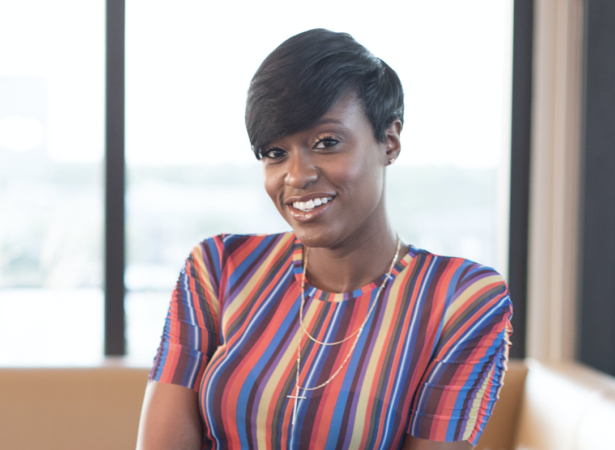It’s difficult, if not impossible, to overstate how badly the economy has suffered since the COVID-19 pandemic — and, as has been shown time and again, Black women have suffered the most under the pandemic. Fortunately, Kajabi — a software company offering a full suite of world-class online business tools working seamlessly together — helped three Black female entrepreneurs to survive, and even thrive, during this unprecedented time.
Kajabi helps digital entrepreneurs set up a website, create online courses, set up a payments system, start an email newsletter, and basically does all the “grunt work” that most business owners don’t think about doing when they’re first setting up their business.
But, best of all, Kajabi does not take any percent of the revenue their users earn — unlike other platforms — so all of the income goes right to the ladies.
We talked to Dominique Broadway of Finances Demystified, Ruby Asabor of The Lavish Life Academy, and Eve Guzman of the G Transformation Academy to see how Kajabi helped them change their lives for the better and earn millions of dollars, despite — or, perhaps, due to — what the pandemic threw at them.
AfroTech: What inspired you to form a company in what has to be the riskiest year to do so?
Ruby: Starting Lavish Life Academy in the middle of a pandemic was risky, but we knew whole-heartedly that this had the potential to change people’s lives forever. One of the driving forces behind the creation of the Lavish Life Academy was a YouTube video I created as part of my “Money Mondays” series that went viral with over half a million views entitled, “10 ways to make money from home.” Based on the engagement and the responses from that video, I noticed that people were truly in dire need to get another source of income as unemployment rates were skyrocketing. I put everything else I was doing to the side, created a Kajabi account, and was able to seamlessly build my business using their platform as a complete novice to the course creation industry! If Kajabi hasn’t been so beginner-friendly for me, I don’t know how I would have been able to have such a fast turnaround with my course.
AfroTech: Take us through a “day in the life” of being an entrepreneur. What do you think are some of the most common misconceptions people have?
Dominique: My “day in the life” is a lot different now that I have a daughter and staff to support our business. On most days, I wake-up, work out, have breakfast with my Husband, do a little trading, then hop into work. This usually includes phone or video calls with my staff or press. A few days a week I teach our investing course and will spend other time creating content.
A misconception is that entrepreneurs have to work all day and pull all-nighters to make things happen. When I first started that was certainly the case, but the goal is to get your business to a point where you do not have to work all day every day and you can instead work the hours you desire doing the things within your business that you love.
AfroTech: What was the most challenging part of navigating a fairly new business in an unprecedented year like 2020?
Eve: The fear that people would not be able to afford the program or that people would think it was too risky to invest at a time like this. It turned out to be the opposite. More and more personal trainers and fitness coaches were moving their in-person businesses online and needed to know how to pivot quickly. They were looking for a done-for-them structure and high-level business mentorship. We sold out every single launch within days of launching.
AfroTech: What is the one piece of advice you would give budding entrepreneurs?
Ruby: My number one piece of advice to aspiring entrepreneurs is to be willing to learn. Education in entrepreneurship, mentorship and just trying to be the best for yourself and for your business will take you so far. Starting your own business can be terrifying. It’s a huge leap. There’s a lot to learn, it’s always a risk, and you can face a very steep learning curve. In business, you never stop learning. Education and knowledge are vital to your success. The marketplace doesn’t sit still, things continually develop, change and adapt. The knowledge that you had when you started up might no longer be relevant or correct. If you don’t keep learning, you can fall behind very quickly.
Dominique:Just start! Many entrepreneurs wait for things to be perfect before they begin and that is not necessary, as things will never be perfect. Just start — as the world needs your talents and skills.
Eve: Do it afraid. It’s my motto that I live by daily. I took messy action and never gave up. I was consistent and relentless. I got everything I wanted because I never gave up when things got scary.

















